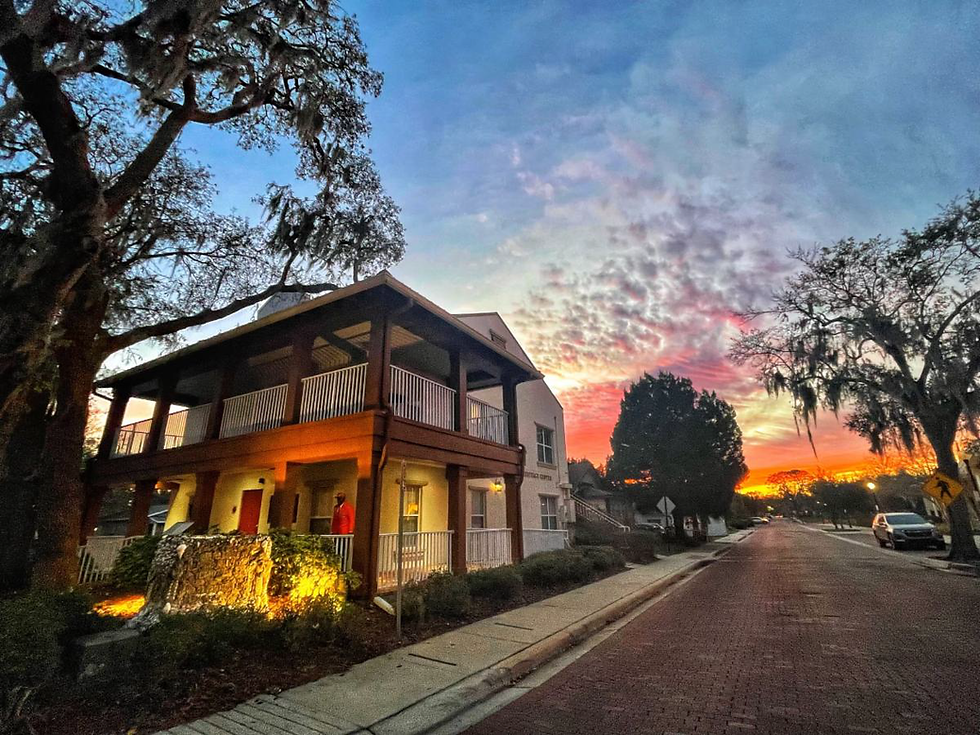Celebrating Black History Month: The Businesses of Hannibal Square
- Dena Bader
- Sep 17, 2024
- 2 min read
Our recently opened exhibition “Retailing Our Story” The Bistros, Boutiques and Businesses of Winter Park is the story of the past 100 years of commerce. In celebration of Black History Month, today we highlight the early Westside businesses.
In 1881 Hannibal Square is designated as a Black neighborhood and residential lots are sold by city founders Loring Chase and Oliver Chapman.
In the aftermath of Reconstruction, there are limited opportunities to own land, so many former slaves considered Hannibal Square a good option for their families.
The fathers and sons of Black families work as train porters for the Atlantic Coast Line; cooks and waiters are employed by Winter Park’s luxury tourist hotels and citrus workers plant, pick and pack fruit in the surrounding groves. During the warmer seasons when their employers take leave to their northern residences, workers manage their groves and estates. Other families grow vegetables and fruits on their own property and sell them at market. Women are employed by the White residents for housekeeping and childcare.
For decades home-based businesses are numerous in Hannibal Square and are primarily operated by women. They bake bread, cakes, and pastries for sale within their community and provide sewing, laundry, and childcare services.
As wealth is acquired, Black families purchase Hannibal Square properties and build grocery stores, hotels, boarding houses, and barbershops. They begin to build the structure for businesses to thrive on the Westside.
Washington Straughter epitomizes the growth of Westside businesses. Straughter was born in 1858 as a slave in Virginia. Following emancipation, he moves to Winter Park and, with aid of a land grant, purchases and cultivates orange groves and raises cattle and horses. Straughter establishes a prosperous business and builds his own large family home in Hannibal Square.

By the 1930s Straughter’s son Arthur owns and operates multiple businesses from a building in the heart of Hannibal Square. His enterprise includes a two-story building with a popular ice cream parlor and sweet shop plus a separate pool hall on the first floor, and a community dance hall on the second. The transfer of family wealth has begun and is evident today in the generations of families who continue to live and work in Hannibal Square.
Stop by the Museum and submerge yourself in businesses from other time periods. The exhibit features a reenacted Pioneer Store of the 1920s. At the “Colony Theater” enjoy watching the Chamber of Commerce’s promotional videos of Winter Park’s past 70 years. There’s also a tribute to iconic Park Avenue stores Proctor’s, The Golden Cricket and Harper’s Tavern. For children there is a “hands on” Toy Emporium showcasing 100 years of favorite toys and games.
The Winter Park History Museum is free and open 10-4 Tuesday-Friday, Saturday 10-2 at 200 W. New England Avenue.
And just down the street, don't miss "The Story Quilters of Hannibal Square" exhibition. A collectively curated exhibit showcasing the stories and reflections of the black experience unique to each artist. On view through April 29th 2023.
Visit them at 642 W. New England Avenue.
Written by WPHM Archivist, Linda Kulmann
Photo credit: Christy Grieger










Comments